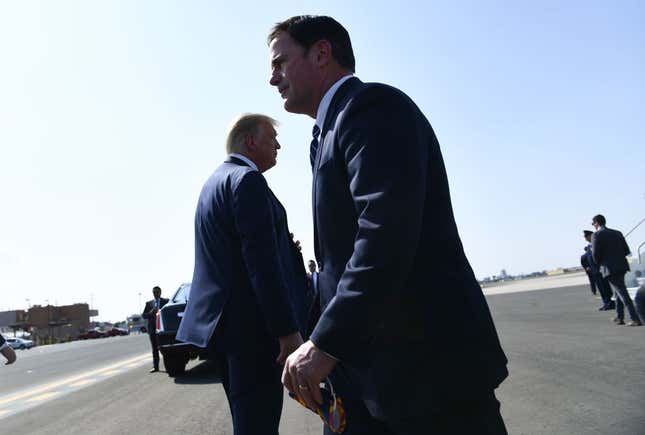
In 1993, Congress passed the National Voter Registration Act to cut down “discriminatory and unfair registration laws and procedures.” The measure requires states to accept voter registration applications by mail and offer registration services at motor vehicle offices, military recruitment centers, and government facilities that provide services to people with disabilities or lower incomes.
Arizona has had its share of voter disenfranchisement difficulties. In 2013, U.S. Supreme Court rejected efforts by Arizona to impose the citizenship-proof requirement; arguing cannot supersede federal law, which doesn’t require proof of citizenship to register to vote. 1.1 million residents in Maricopa County were purged off voter roles in 2018.
Despite this, it hasn’t stopped the Arizona legislature from trying to implement the same voting restrictions which were struck down years ago. Arizona Gov. Doug Ducey signed House Bill 2492, requiring anyone who wants to vote in the presidential election to provide proof of citizenship, according to Tuscon.com. This effort will most certainly face lawsuits and possibly go up to the Supreme Court for a second time.
“Election integrity means counting every lawful vote and prohibiting any attempt to illegally cast a vote,” Ducey said in a letter explaining his decision to sign the bill.
He called the bill “a balanced approach that honors Arizona’s history of making voting accessible without sacrificing security in our elections.”
Kansas, Alabama, Georgia, and Arizona are the only four states that have laws requiring proof of citizenship to vote. The Supreme Court rejected a Kansas appeal to revive their version in late 2020. However, Arizona’s new law takes effect 90 days after the end of the legislative session–putting it on a timeline to be in place before the August primary. It would require the roughly 31,000 federal-only voters to show proof of citizenship. Anyone newly registering to vote will have to provide evidence of their address.
Voting advocates say the law is “vague and could go much farther, affecting hundreds of thousands who haven’t recently updated their voter registration or driver’s license.” Anyone who registered to vote before 1996 in the state, before proof of citizenship, was required to get a driver’s license and have not updated their voter registration would have to provide documentary evidence.
County recorders will have to check voter rolls and purge anyone who isn’t listed as an “eligible citizen.” They may face felony charges if they don’t comply. Arizona state Sen. Martin Quezada expects the law to be immediately challenged in court.
“This is part of a larger narrative they’re pushing that the 2020 election was fraudulent and that Joe Biden didn’t win the state of Arizona,” Quezada explained. “Even though this narrative has been debunked over and over again, they’re still using it as a justification for these bills.”

